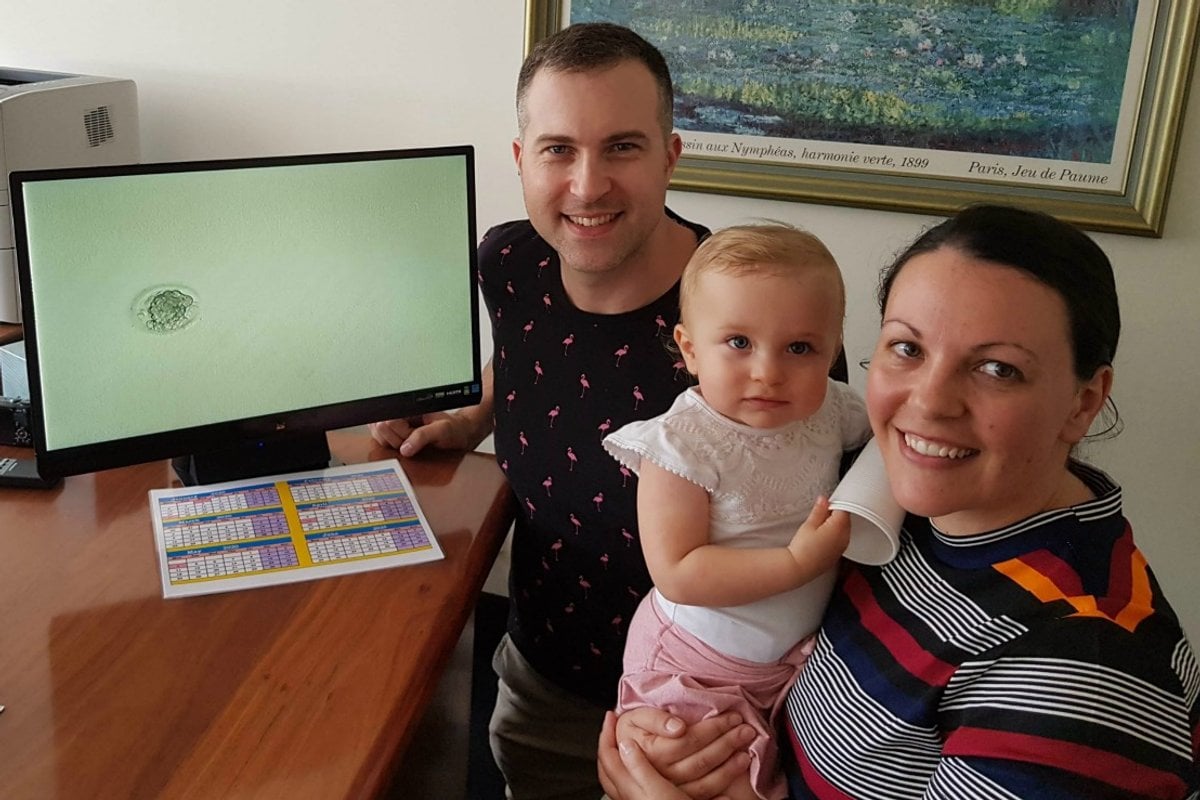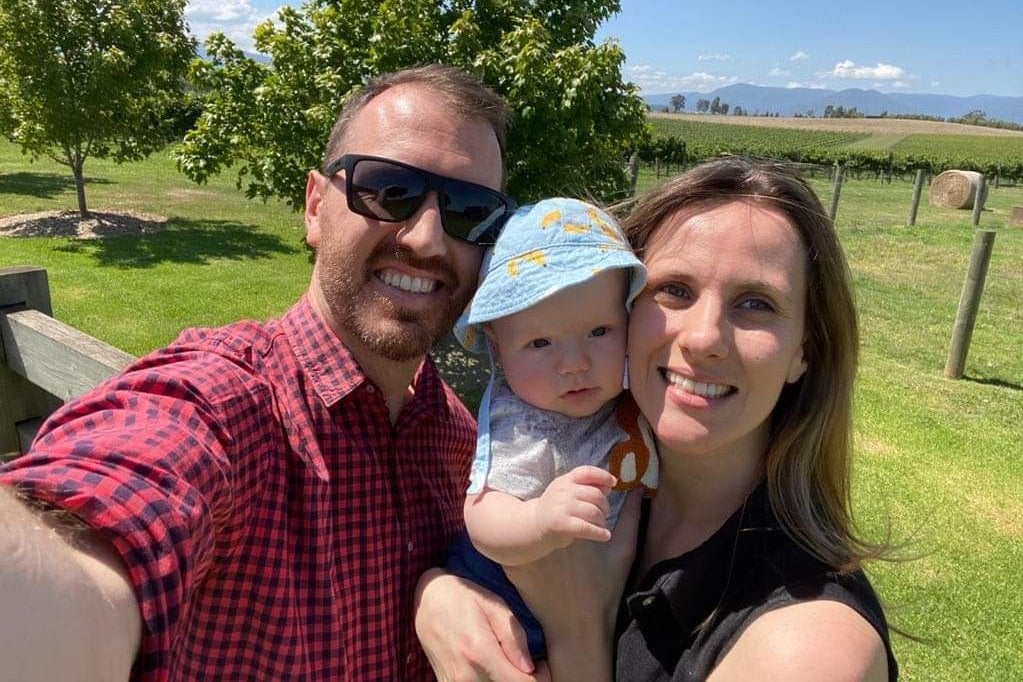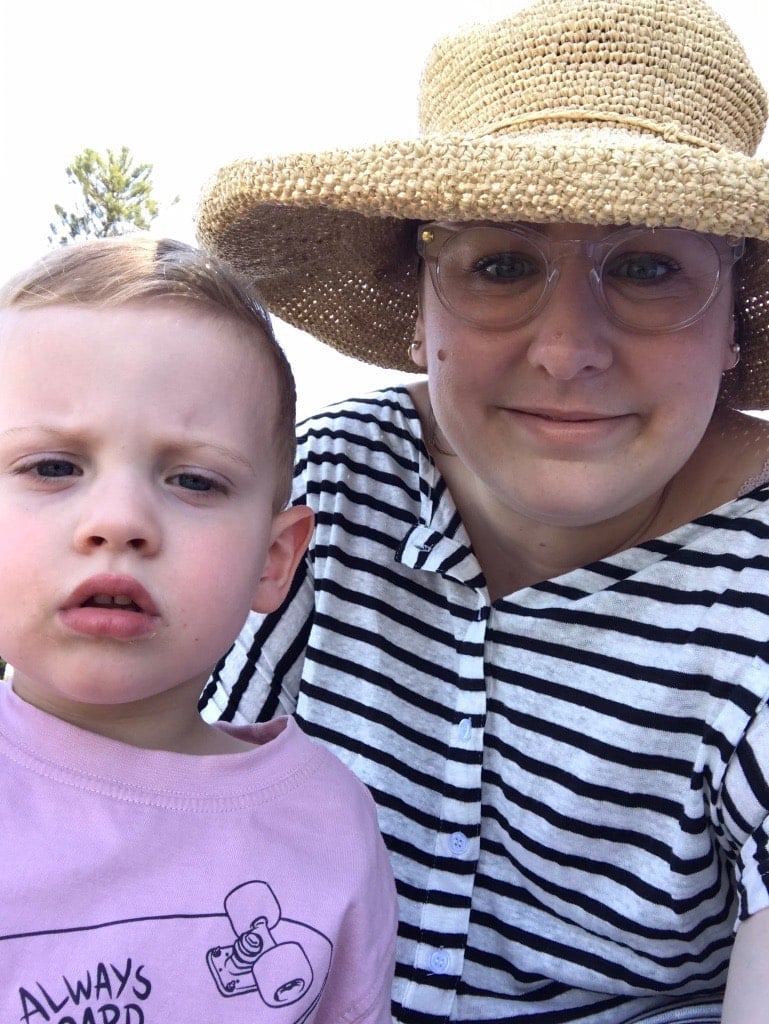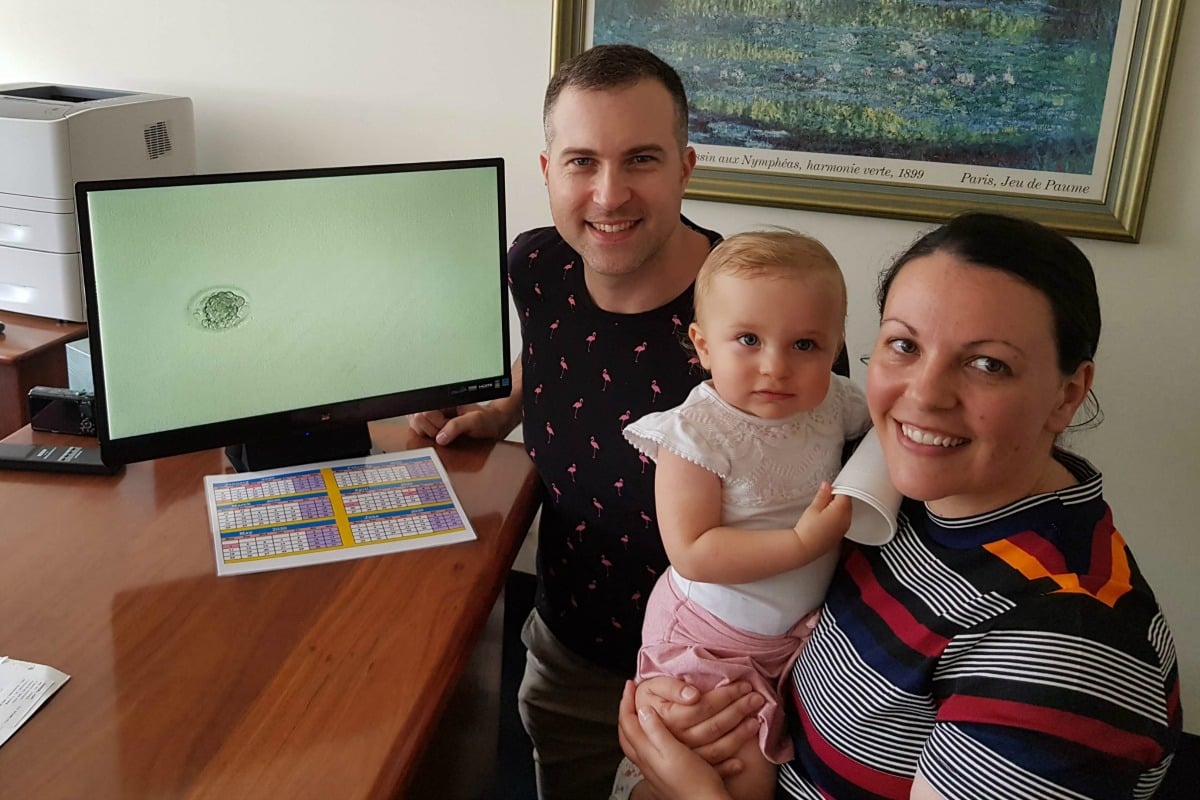
Couples who have struggled to conceive a longed-for baby and then been through IVF, know just how emotional and challenging the process can be.
While the woman hoping to become pregnant has a number of medical procedures, regular monitoring and hormonal changes to go through, her support partner has a different experience to navigate from the sidelines.
Mamamia spoke to four partners to find out what the IVF journey was like from their perspective, as well as senior fertility nurse Samantha Costa for her professional advice.
Watch the trailer for Mamamia's fertility podcast, Get Me Pregnant. Post continues below.
Leon is husband to Carla and dad to 11-month-old Lennon.
Leon was hands-on from the very start, able to act as a buffer between medical staff and his wife Carla.
“I tried to be at every single appointment for support,” Leon says.
“Even though I was sitting quietly through most of them, it was important to get news and updates (good or bad) together to make sure my wife didn’t feel alone through any of it.
At times Leon felt helpless, but their relationship remained strong throughout the process.




